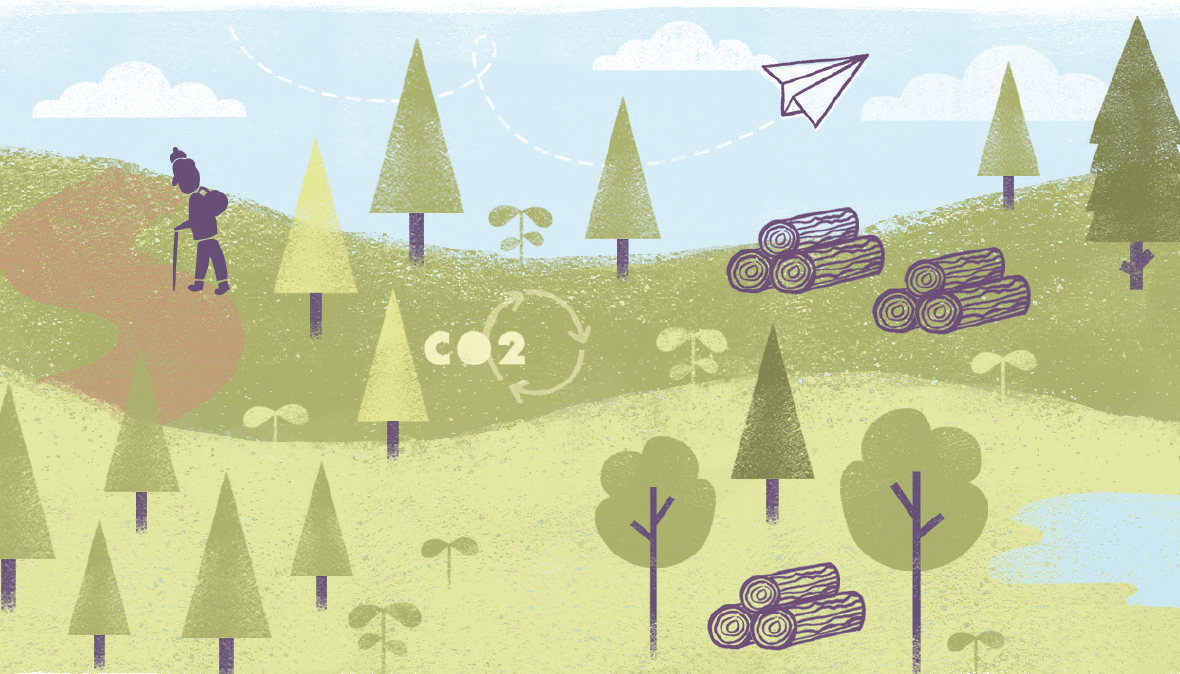A national climate emergency has been declared by the UK Parliament and we all must take responsibility to take action help this situation. At Corsham Print the environmental impact of print is top of our agenda.
Printing as an industry has, for a long time, had a stigma surrounding it when looking at its environmental impacts. However, not many people know but the print and paper industry has been working for decades to protect the environment.
- Vegetable oil based inks
- Low energy production
- Certification of paper
- Carbon capture
Despite these initiatives there are still many myths about print and paper that cause major issues within the industry. Misconceptions are further reinforced by financial organisations, utility companies, and many other service providers. This is because they are increasingly encouraging their customers to switch to paperless bills and statements.
We have put the following information together with the help of ‘Two Sides’. An initiative to promote the sustainability of the graphic communications and dispel common environmental misconceptions. Providing users with verifiable information on the environmental impact of print and why print and paper is an attractive, practical and sustainable communications medium.
Myth: European forests are shrinking
Fact: On average, European forests have been growing by over 1,500 football pitches every day.
Paper is a uniquely-renewable and sustainable product. The main raw material, trees, are grown and harvested in a carefully controlled and sustainable way – so successfully that European forests, where most of the raw material comes from, have grown by an area the size of Switzerland in just 10 years. This means that between 2005 and 2015, European forests grew by 44,000 square kilometres, which averages 1,500 football pitches per day.
Myth: Planted forests are bad for the environment.
Fact: Well managed planted forests reduce the amount of pressure on natural forests and can provide many other environmental benefits.
Forests are essential for the transition to the green economy. Well managed planted forests are a vital element in the global forestry mix. Natural forest accounts for 93% of world’s forest area with planted forest occupying 7%, or 290 million hectares. In Europe, planet forests are not replacing natural forests. They provide many benefits, such as: providing new recreational facilities, preventing soil degradation and erosion, and providing new habitat shelter for wildlife.
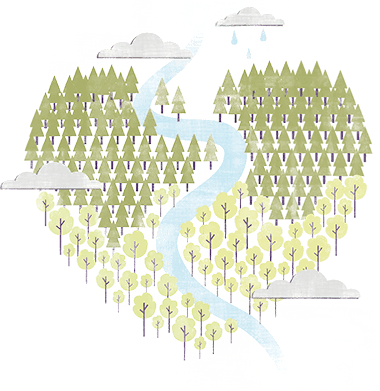
Myth: Paper is bad for the environment.
Fact: Paper is one of the few truly sustainable products.
Paper is based on wood, a natural and renewable material. As young trees grow they absorb CO2 from the atmosphere. Furthermore, as a wood product, paper continues storing carbon throughout its lifetime. The paper industry has several respected certification schemes ensuring the paper you use has come from a sustainable forest source. The two most recognisable certifications are the Forest Stewardship Council® (FSC) and the Programme for the Endorsement of Forest Certification (PEFC).
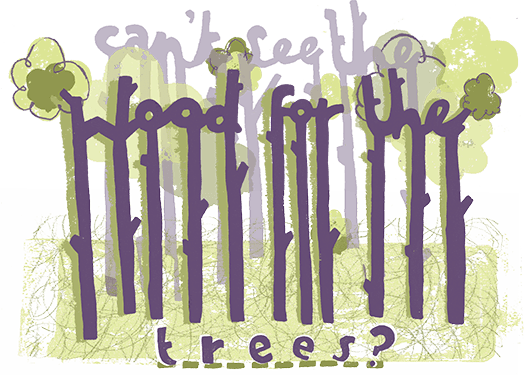
Myth: Paper production is a major cause of global greenhouse gas emissions.
Fact: Most of the energy used is renewable and carbon intensity is surprisingly low.
The European pulp and paper industry produces original bio-based products using wood, a renewable material. It is also the biggest single industrial user and producer of renewable energy in the EU: 60% of the industry’s total fuels consumption is biomass-based. And the industry has the potential to do even more in the future. It has the experience, technology and supply chain to play a big part in the bio-economy and to do so in a resource efficient manner.
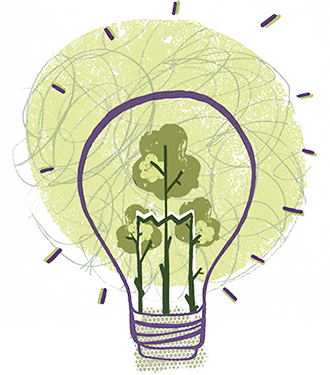
Myth: Electronic communication is more environmentally friendly than paper-based communication.
Fact: Electronic communication also has environmental impacts.
“Go Paperless”, “Go Green” and “Save Trees” are common messages seen these days as many organisations encourage their customers to switch to electronic transactions and communications. But are these appeals based on fact?
Paper is a uniquely renewable and sustainable product. The main raw material, wood, is grown and harvested in a carefully controlled and sustainable way. Furthermore the environmental impacts of our ever-increasing digital world cannot be ignored. The ICT industry accounts for around 2.5-3% of global greenhouse gas emissions and this is predicted to rise to 14% by 2040.
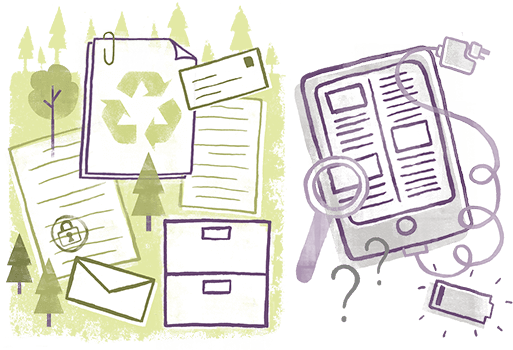
Corsham Print Environmental Initiatives
We run a state-of-the-art LED drying offset press. Drying ink with LED lights rather than the old conventional UV systems has reduced power consumption by between 88-91%.
We are a member of an FSC® Certified Group FSC-C004309 and we only print on FSC-certified paper.
Our retail stationery outlet has introduced a wide range of environmentally friendly products including Woodland Trust papers.
We are part of Premier Paper and The Woodland Trust’s Carbon Capture Program.
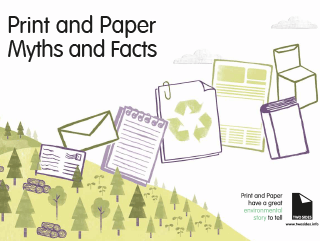
Click below to download an interesting read produced by ‘Two Sides’
Some useful links on the environmental impact of print:

